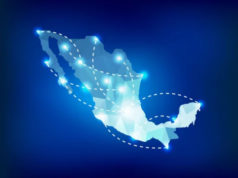WASHINGTON (Reuters) – The U.S. Commerce Department said on Wednesday it would renew its authority over the company that manages Internet domain names beyond September 30, when the U.S. government had been expected to permanently cede control.
«We’re in discussions on amending and extending it, and some time between now and (September 30) I expect us to do that,» John Kneuer, an acting assistant secretary of commerce, told Reuters after a Senate Commerce Committee hearing.
The end of the month is the expiration date for the government’s memorandum of understanding with the Internet Corporation for Assigned Names and Numbers (ICANN).
The existing three-year agreement had been intended to be the last, after which the U.S. government would give up control over addresses such as «.com» and country domain names such as «.cn» for China.
Kneuer said he expects the extension to the agreement to last between one and three years.
While the U.S. government is still committed to giving up control in the long term, the extension must be long enough to resolve what Kneuer described as broad issues over ICANN’s «accountability and transparency.»
Some foreign critics have urged the U.S. government to give up control of ICANN, saying it has too much influence over what is now a global commerce, communications and social engine.
Under the existing agreement, the U.S. government can control domain name policies, and is believed to have played a role in ICANN’s refusal to create a «.xxx» domain for pornography sites this year. The European Commission accused U.S. officials of political interference in the decision.
Kneuer told the committee he had not consulted with foreign governments on the length of the extension.
One area of potential conflict between the U.S. government and ICANN is the future of «Whois» databases, directories in which Web site owners identify themselves. The databases are publicly available on the Internet and allow anyone to see who owns a domain name.
ICANN is considering changes to Whois requirements to restrict access and protect the privacy of site operators.
But the U.S. Federal Communications Commission, among other U.S. and international law enforcement and regulatory bodies, say they need access to the Whois data to do their jobs.
«The future of ICANN is really on the line here,» Federal Trade Commissioner Jon Leibowitz told the Senate panel.
«For the past decade we have used Whois databases in virtually all of our Internet investigations. It is often one of the first tools we use to identify wrongdoers,» he said.
Leibowitz said a move by ICANN to restrict Whois data could jeopardize the ability of law enforcement bodies to stop spam, spyware and identity theft.
Kneuer agreed the Whois database is «essential» for law enforcement officials to use in investigations.
Fuente: Reuters, Joel Rothstein


















